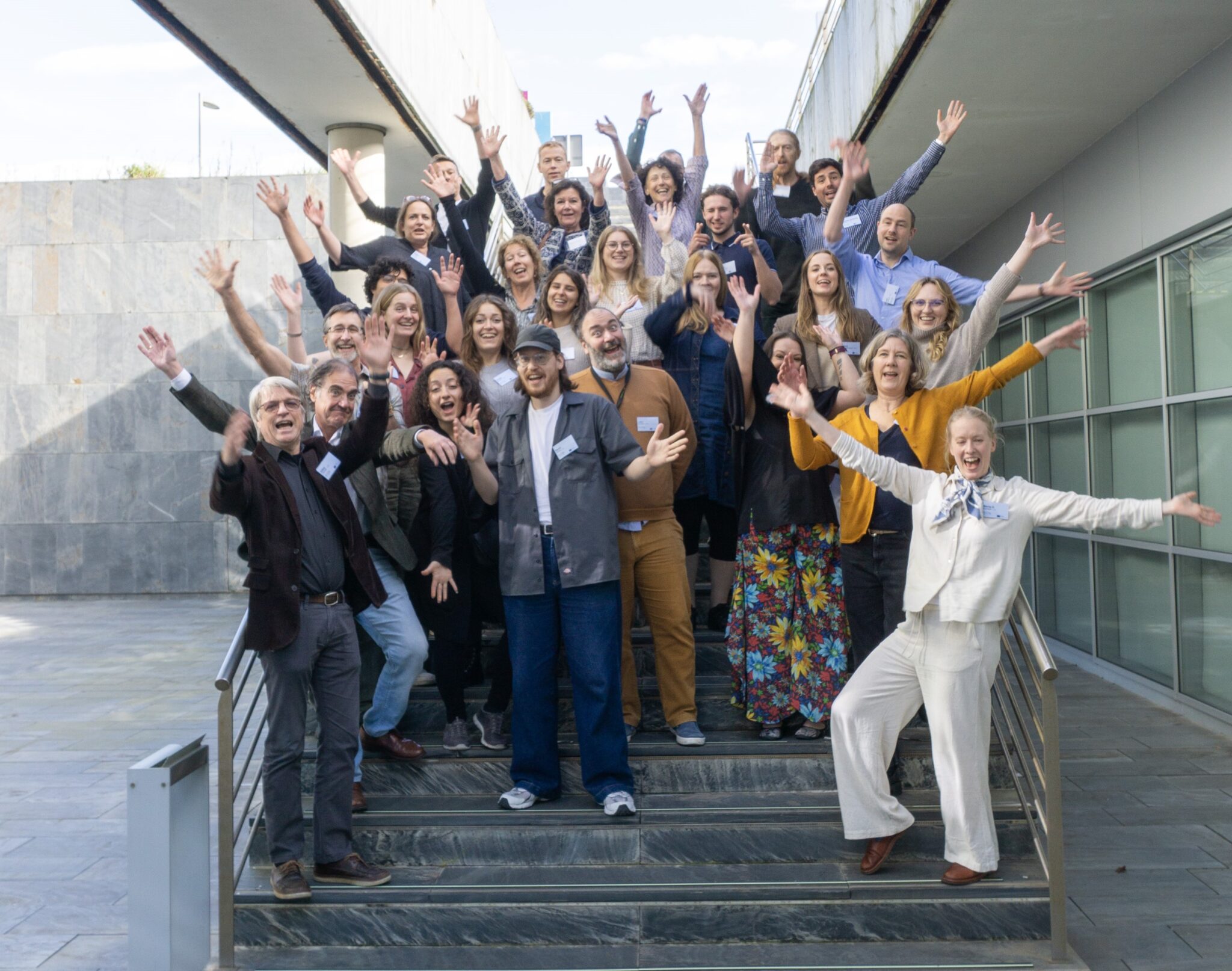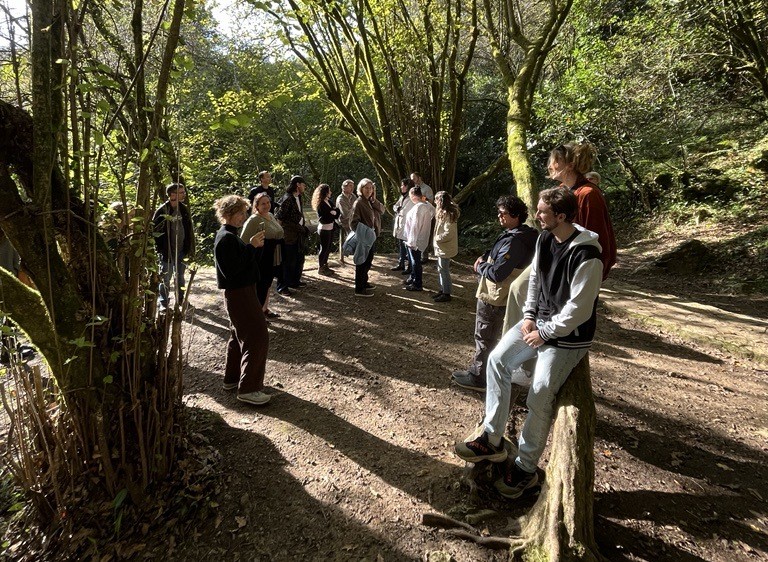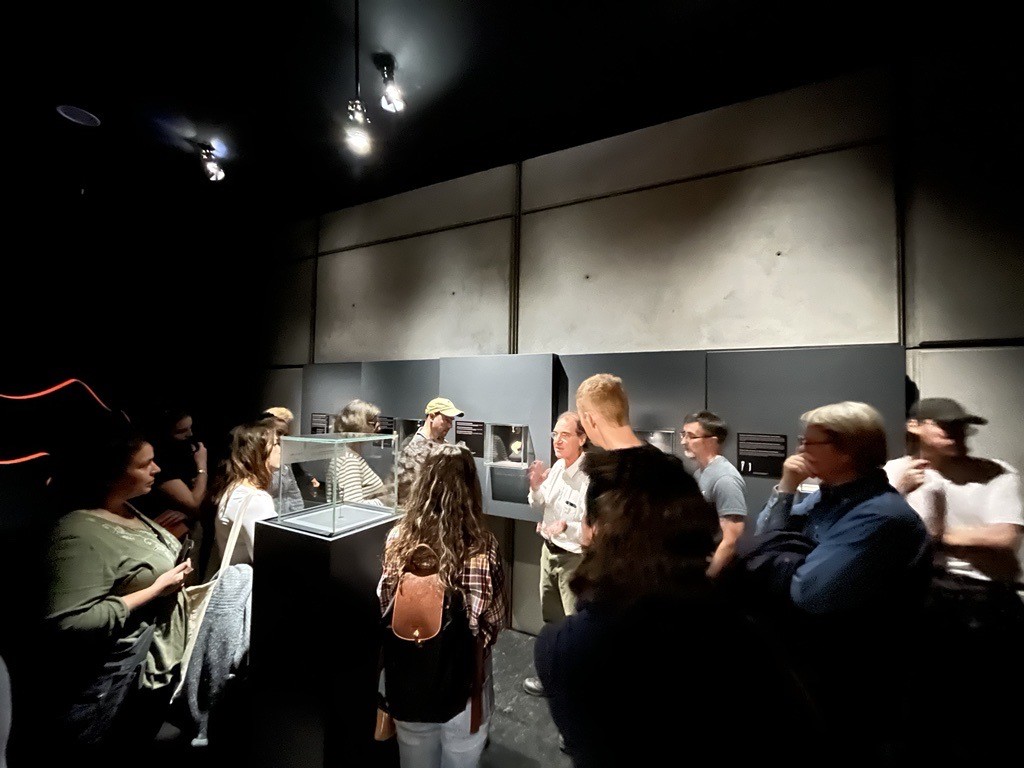IHCantabria hosts the ‘PhD School’ of the ArCHe Project: Preserving European Coastal Archaeological Heritage

Group of PhD students, academic partners, supervisors and some members of the external advisory committee of the ArCHe project who are participating in the PhD School held at the IHCantabria facilities
This project provides an ideal platform to advance research and establish collaborative networks among experts, reinforcing the commitment to the development of sustainable practices to protect coastal archaeological heritage in Europe
From November 4 to 14, 2024, the Environmental Hydraulics Institute of Cantabria (IHCantabria) will host the PhD School of the European project ArCHe, an event that includes the programming of several activities that will bring together the group of doctoral students, academic partners, supervisors and the external advisory committee of this project.
This event is part of the Marie Skłodowska-Curie Actions (MSCA) of the Horizon Europe program, which funds the training of 10 PhD students in research on Europe’s coastal archaeological heritage, focusing on Paleolithic hunter-fisher-gatherers.
Relevance of the European ArCHe project
ArCHe is the acronym for the project entitled “Archaeological Coastal Heritage: Past, present and future of a hidden prehistoric legacy“. It is a European research project that seeks to address the challenges of the deterioration of coastal archaeological heritage, severely affected by climate change and human activity.
Coastal Stone Age archaeological sites in Europe are fragmented, poorly visible and extremely vulnerable. To face these challenges, ArCHe encourages the training of young researchers who, through multidisciplinary and international approaches, will contribute to the research, conservation and dissemination of this heritage, from an intersectoral perspective.
Therefore, the main objective of this project is to analyze and preserve Europe’s valuable and fragile coastal archaeological heritage. To this end, an innovative approach combining humanities, life sciences, earth sciences and social sciences is promoted to protect and manage the remains of Upper Paleolithic hunter-fisher-gatherers dating from 12,000 to 2,000 BC. This multidisciplinary effort is coordinated by the University of Oslo and has the collaboration of several institutions, such as the University of Cantabria, through Professor Pablo Arias, and IHCantabria, whose involvement is led by Javier López Lara. The execution period of this project is four years, from 2024 to 2027.
Programming of the PhD School of the European project ArCHe
A “Project Review & Scientific Exchange Meeting” was held on November 4 and 5 to evaluate the progress of the project and facilitate the exchange of scientific knowledge among the participants.
From November 6, the doctoral students will participate in two training courses. Course I, entitled “Marking coastal areas: Mobility, networks and rituals“, will be given by the University of Oslo and the University of Cantabria, and will focus on the study of mobility, social networks and rituals in coastal areas during the Paleolithic. Course II, called “Coastal environments“, will be led by the IHCantabria team, including researchers such as Javier López Lara, Manuel del Jesus, César Vidal Pascual, Camilo Jaramillo Cardona, Íñigo Aniel-Quiroga, Laro González Canoura, Moisés Álvarez Cuesta, Mauro Frontini Miguel and David Lucio Fernández, among other experts. This course will address coastal environmental dynamics affecting archaeological sites.
The group of doctoral students participating in this event are: Jasmine Mifsud and Claudia Finocchiaro (linked to the University of Cantabria, in Spain); Kelly Gibbons and Amanda Sky (linked to the University of Oslo, in Norway); Giada Pirrone and Anass Butsch (linked to the Centre National de la Recherche Scientifique, in France); Kevin Sleebos (linked to the University of Latvia, in Latvia); Jesper Gulliksen and Rachel Runesson (linked to the University of Gothenburg, in Sweden).
The event being held during this and next week at IHCantabria is a key platform to advance research and establish collaborative networks among experts, reinforcing the commitment to the development of sustainable practices to protect coastal archaeological heritage in Europe.
More information about the ArCHe project can be accessed through the following links:



From left to right: images of the group that is participating in the celebration of the ‘PhD School’, in the facilities of IHCantabria, outside El Pendo cave and during their visit to the Museum of Prehistory and Archaeology of Cantabria (MUPAC)
The ArCHe project is implemented with funding from:




